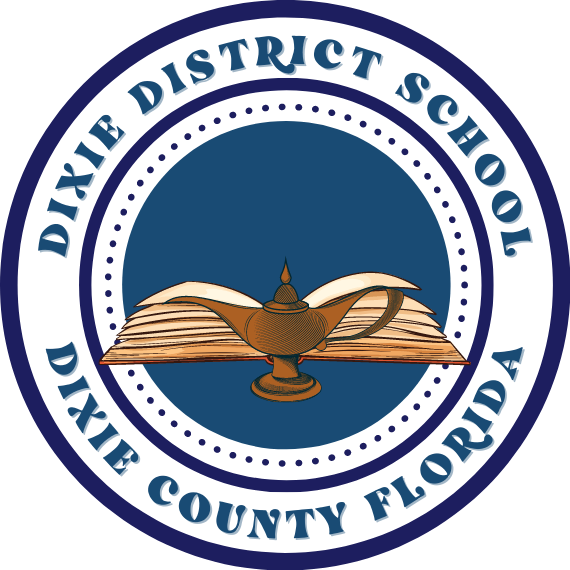CHAPTER 6.00 - PERSONNEL
6.432 Social Media
POLICY:
The Board recognizes the importance of incorporating current technology tools, including new methods of electronic communication, into the classroom to enhance student learning. It further recognizes the importance of employees, students, and parents engaging, learning, collaborating, and sharing in digital environments as part of 21st Century learning. The Board strives to ensure that electronic communication tools incorporated into the school curriculum are used responsibly and safely. Federal law mandates that the District provide for the education of students regarding appropriate online behavior, including interacting with other individuals on social networking websites and in chat rooms, and regarding cyberbullying awareness and response. See School Board Policy 8.33 – Electronic Systems Responsible Use.
The Superintendent is charged with designating the District-approved social media platforms/sites, which will be listed on the District’s website.
The Board understands that employees may engage in the use of social media during their personal time. The District neither encourages or discourages employees’ use of social media for personal purposes. School employees who use social media for personal purposes must be mindful that they are responsible for their public conduct even when not acting in their capacities as school district employees. The District regulates employees’ use of social media for purposes related to their District assignment to the same extent as it regulates any other form of employee communication. All school employees must comply with Board policy when communicating with individual students through electronic means, such as through voice, email, or text messaging.
The Board is committed to ensuring that all stakeholders who utilize social media technology for professional purposes, including staff and students, do so in a safe and responsible manner.
I. Definitions
A. Social Media. Social media is any form of online publication or presence that allows interactive communication, including, but not limited to, social networks, blogs, internet websites, internet forums, and wikis. Examples of social media include, but are not limited to: Snapchat, Instagram, Facebook, Twitter, Instagram, YouTube, Google+, and Flickr.
B. Professional Social Media. Professional social media is a work-related or professional social media activity where the employee identifies their profession, work responsibilities, and could include the use of district names/logos/brand. This includes platforms such as Linkedin. As this form of social media is maintained personally, it follows the same rules as Personal Social Media.
C. Personal Social Media. Personal social media is a non-work-related social media activity. Personal social media activity is as a private citizen and cannot reference employment with the District in any manner.
D. District Social Media Platform. District Social Media is any social media page, feed, or entry formally maintained by the District, school, department, or class for official purposes. It includes sites and/or services such as Facebook; Twitter; Snapchat; Instagram; You Tube; and similar applications.
II. District Social Media Use
The District uses approved social media platforms/sites as interactive forms of communication and accepts public comments. The District-approved social media platforms/sites are considered limited public forums. As such, the District will monitor posted comments to verify they are on-topic, consistent with the posted rules for use of the forum, and in compliance with the platform/site’s applicable terms of service. The District’s review of posted comments will be conducted in a viewpoint neutral manner, and consistent with State and Federal law. Employees’ personal posts on the public platform/sites are limited/restricted to matters of general public interest that are not related to the employee’s specific employment and wholly unrelated to the employee’s job responsibilities (i.e., matters where it is clear the individual is posting not in an official capacity, but simply as a member of the public).
A. Communication on a district social media space should be handled in the same manner as communication in a classroom and/or workplace. The same standards expected in FCPS professional settings are expected on professional social media sites.
B. All such communication must be consistent with the educational objectives of the District and cannot be used for personal or non-District purposes.
C. Employees shall exercise caution, sound judgment, and common sense when using professional social media sites.
D. No personally identifiable student information may be posted by employees on social media sites (including but not limited to district, professional, and personal social media accounts) without permission from the parent/guardian.
E. The Board reserves the right to direct the removal of postings and/or disable a page of professional social media sites that do not adhere to the law or do not reasonably align with the goals of the District without prior notice to the poster.
F. The District’s social media sites may not be used for commercial, religious, political, or for-profit activities and/or communication. The District’s social media entries and communications are prohibited from including links to third-party sites with a commercial, political, and/or religious purpose. Links to sites selling products; advertising goods and/or services; and/or containing language, images and/or materials that are in violation of District policy are strictly prohibited.
G. A post or comment that contains vulgar, profane, or racist words that are discriminatory, harassing, threatening or a violation of privacy, is a violation of this Policy and will be deleted in its entirety without notice to the poster/commenter.
H. Each District-approved social media account/site must contain a statement that specifies its purpose(s) and limits those who access the social media account/site to use of the account/site only for that/those purpose(s), and in accordance with any specified procedures and applicable terms of service. Users are personally responsible for the content of their posts.
III. Social Media for Instructional and School-Sponsored Activities
Staff (including District-approved volunteers) may, with prior approval/authorization from the principal, use social media platforms/sites for classroom instruction or school-sponsored activities. When a staff member uses a District-approved social media platform/site for an educational purpose, it will be considered an educational activity and will not be considered a limited public forum. Students’ use of District-approved social media platforms/sites must be consistent with the Student Code of Conduct, Electronic Systems Responsible Use Policy, the instructor’s directions/procedures, and the platform/site’s applicable terms of service. Students are prohibited from posting or releasing personally identifiable information about students, employees, and volunteers through District-approved social media, without appropriate consent.
In order to maintain a professional and appropriate relationship with students, employees shall not communicate with students who are currently enrolled in schools on personal social media sites. School employees’ communication with current students via personal social media is subject to the following exceptions:
A. communication with relatives or friends and
B. if an emergency situation requires such communication, in which case the employee should notify his/her supervisor of the contact as soon as possible. Employees shall not knowingly allow students access to their personal social media sites that discuss or portray sex, nudity, alcohol, or drug use or other behaviors associated with the employees’ private lives that would be inappropriate to discuss with a student at school.
IV. Expected Standards of Conduct on District-Approved Social Media
A. Employees and District-approved volunteers who access District-approved social media platforms are expected to conduct themselves in a respectful, courteous, and professional manner. Students, parents, and members of the general public who access District-approved social media platforms are similarly expected to conduct themselves in a respectful, courteous, and civil manner.
B. District-approved social media sites shall not contain content that is obscene; is vulgar and lewd such that it undermines the school’s basic educational mission; is libelous or defamatory; constitutes hate speech; promotes illegal drug use; is aimed at inciting an individual to engage in unlawful acts or to cause a substantial disruption or material interference with District operations; or interferes with the rights of others. The District may exercise editorial control over the style and content of student speech on District-approved social media, if reasonably related to legitimate pedagogical concerns. Staff or students who post prohibited content shall be subject to appropriate disciplinary action.
C. The District is committed to protecting the privacy rights of students, parents/guardians, staff, volunteers, Board members, and other individuals on District-approved social media sites. District employees and volunteers are prohibited from posting or releasing confidential information about students, employees, volunteers, or District operations through social media, without appropriate consent (i.e., express written consent from the parent of a student, the affected employee or volunteer, or the Superintendent concerning District operations).
D. Employees shall not use the district’s logo or other copyrighted material of the system on a personal social media site without express, written consent from the District.
V. Retention of Public/Student Records
District communications that occur through the use of District-approved social media platforms/sites – including staff members’/volunteers’ use of social media with school-sponsored activities, and comments, replies, and messages received from the general public – may constitute public records or student records, and all such communications will be maintained (i.e., electronically archived) in accordance with the Board’s adopted record retention schedule and all applicable State statutes.
Staff members and District-approved volunteers cannot rely on social networking platforms (e.g., Facebook, Twitter, etc.) to sufficiently fulfill potential records retention requirements because these platforms, in general, do not guarantee retention and are unlikely to assist in the production of third-party comments and communications that have been edited, deleted, or are otherwise no longer available. Consequently, District employees and volunteers who use such social media accounts for professional communications must operate them in accordance with the general archiving practices and technology instituted by the District so records remain within the District’s control and are appropriately retained.
VI. Any postings, on district, professional or personal social media sites, of the following nature are prohibited:
A. Create a harassing, demeaning, or hostile working environment for any employee.
B. Disrupts the smooth and orderly flow of work, or the delivery of services to the staff or students.
C. Harm the goodwill and reputation of staff, students or the community at large.
D. Erode the public’s confidence in the district.
E. Involve any kind of criminal activity or harms the rights of others, may result in criminal prosecution or civil liability to those harmed, or both.
VII. Consequences
The District may monitor online activities of employees who access the Internet using school technological resources. Additionally, the Superintendent or designee may periodically conduct public Internet searches to determine if an employee has engaged in conduct that violates this policy. Any employee who has been found by the Superintendent to violate this policy may be subject to disciplinary action, up to and including dismissal.
VIII. Social Media Use Agreement
The Superintendent will ensure that staff receives a copy of this policy annually and that Use of Social Media is included in the Electronic Systems Responsible Use Agreement.
STATUTORY AUTHORITY: Chapter 119, 1001.41, 1001.42, 1001.43 F.S.
LAWS IMPLEMENTED: 1002.221, F.S.
6A-10.08 F.A.C.
20 U.S.C. 1232g 34 C.F.R. Part 99
Protecting Children in the 21st Century Act, Pub. L. No. 110-385, Title II, Stat. 4096 (Children’s Internet Protection Act (CIPA), Pub. L. No. 106-554 (2001)
History: Adopted: August 13, 2019
Revision Date(s): October 11, 2022
Formerly: School Board Policy 8.37

Located in Cross City, Florida
Contact
Main Number
(352)541-6250
Superintendent’s Office
(352)541-6231
Digitally Designed by BramJam, LLC

